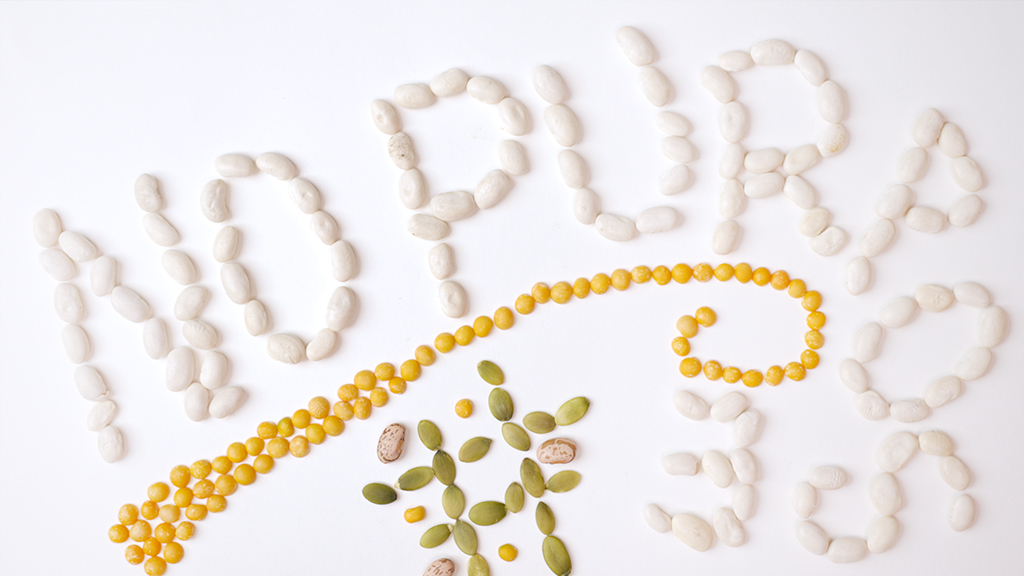
I sat at my kitchen table for about eight hours moving beans and seeds around to make the title sequences for this series—This Can Help—about the little things we can do during times of uncertainty.
Considering that I could’ve made simple text titles, was that a pointless thing to do? Instead of spending about an hour for each title sequence, I could’ve spent just three seconds.
However, there’s actually a rationale for doing things for no purpose.
There can be peace and joy that comes from the process and more creativity as well. I explain more in the video about how doing things for seemingly no purpose doesn’t mean it’s pointless. I share how doing so can add great benefit to your life.
Many of us were raised with the message that having a purpose in life and behind what you do is important. There are many benefits in having purpose behind the things you do; benefits such as greater clarity, sense of meaning, and fulfillment in life. However, that doesn’t mean everything you do needs to have a purpose.
There can be an equal amount of positive benefits when you do things for no purpose.
The Why Behind Doing Things For No Purpose
It might be confusing to understand why you would do things for no purpose. Some people might see it as a waste of time. After all, why would you do something that has no purpose when you could be doing something with more direct benefit?
Others might think doing things for no purpose is simply just doing something for fun. But sometimes, you’re not sure if something will be fun. Perhaps you’ve never tried it before. Or maybe you’re not sure if what you’re doing will even work out the way you think it will.
What some of us don’t know is doing things for no purpose—because you want to or as a form of exploration—is vitally important to your mental and physical wellbeing. Doing something in a more playful, exploratory manner can help your brain produce a cocktail of hormones that contribute positively to your day.
We all feel some sort of stress in our lives. While too much stress can cause physical harm to our bodies, did you know there’s a kind of stress that’s good for you?
Increases The Good Kind of Stress
That kind of stress is known as eustress, which contributes to feelings of excitement and motivation. Whenever you finish a project, embark on an interesting challenge, or do an activity you enjoy without needing any purpose or reason, your body releases eustress. In essence, eustress being released into your body feels like pure excitement about being alive. Low levels of eustress can result in feelings of boredom, malcontent, or depression. Without a healthy amount of eustress, you may find yourself not striving to achieve your goals or feeling like you don’t have a reason to wake up in the morning.
Encourages Curiosity and Play
Another benefit of doing things for no purpose is it can help boost your imagination and creativity. For many of us as children, play was a more common activity than it is now as adults. This is because playing is how we develop social and creativity skills as children.
However, contrary to the path most of us take, the importance of play doesn’t diminish as we become adults. While we have more serious responsibilities as adults, that doesn’t mean that the time for play is over. Play is often considered trivial or frivolous by the time we become adults, and that is to our detriment.
The act of play can promote a more creative mindset. Doing things for no purpose increases our ability to explore, experiment, and to take risks in other parts of our lives. It’s a benefit that can add more creative problem-solving ability to your other skills.
Overly Focusing On Purpose
The opposite of doing things with no purpose is to do things on purpose. This is what many of us have been conditioned to do by our parents, teachers, and society. As such, focusing on purpose usually comes naturally to us as adults.
But purpose can be over-emphasized in our day-to-day lives. In fact, we can be overly focused on purpose to the point we need to have a purpose behind almost everything we’re doing.
In this case, we’re not talking about having a greater purpose—in the form of meaning, a calling, or a career that you’re passionate about. What we’re talking about is justifying everything you do—even when it comes to the more casual things you might choose to do during your downtime.
Contributes To Less Fun
One issue with focusing on doing everything for a purpose is that you’ll likely find yourself having less fun. You may find yourself prioritizing practical activities, resulting in having less time for exploratory activities. Eventually, you may start developing a more limited perspective—viewing life as a never-ending stream of work, to-do items, and problems. This lack of enjoyment in life can harm your health, causing issues like burnout, stress, and depression. You’ll also lack the production of eustress, the good kind of stress mentioned above that boosts feelings of motivation and zest for life.
Focusing too much on purpose can also happen inadvertently with activities you enjoy. When you turn a hobby into a potential business, you’re assigning a purpose to the hobby that wasn’t there before. That hobby now has the purpose of making you money; and if you’re not careful, the activity may stop being as fulfilling as it used to be. By assigning a purpose to everything you do, you risk losing enjoyment in those things. Sometimes, a hobby is best left as something purely for exploration, fun, or enjoyment.
Increased Likelihood Of Burnout
While burnout is typically associated with being overworked in your professional life, what’s considered “work” could extend beyond that. It could also include personal and family life— trying to manage a household, paying bills, taking care of others, and fixing things around the house. Symptoms of burnout include exhaustion, interpersonal problems both at home and at work, and a dip in productivity. The best way to combat burnout is to take a step back from your work and do something just for yourself.
Through balancing purposeful activities with doing things for no purpose other than because we want to, we are able to have the best of both worlds. Perhaps we can even find a way to combine the two—introducing more of an exploratory, playful approach to the things we do for a purpose.
Next in the This Can Help series is Move More.
